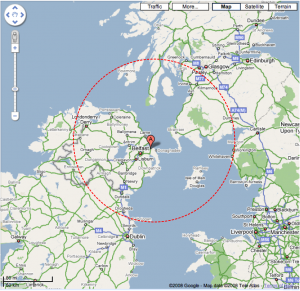Newsbrief: In the wake of Double Fine’s astonishingly successful Kickstarter campaign, industry trade body UKIE called for legislation changes that would allow UK video game companies to use crowd funding to finance their projects.
UKIE explained that the UK’s current legal and regulatory framework puts too many restrictions on crowd funding, and the group promised to release a report that outlines the ways in which the laws should change to better suit game developers and the entertainment industry at large.
I view this with some discomfort. There is nothing stopping UK video game developers using crowd funding to finance their projects. Nothing. Beginning their position with a straw man argument sets the scene for a document filled with repetition and obfuscatory prose.
The restrictions of the UK’s current legal and regulatory framework are in place to protect people from shysters. It’s not always possible and some people get burned but it’s the best thing for everyone.
There is nothing stopping Kickstarter from being in the UK as-is. But this paper from UKIE is attempting to effect serious change in the way securities are dealt by permitting crowd funding from “small holders” to purchase securities in bulk and I’m extremely wary of it for two reasons:
- they’re using Kickstarter as an example. This is disingenuous in my opinion as its saying “look what donations/pre-ordering can accomplish, now let us sell shares this way” and nearly every discussion seems to revolve around selling investments. Kickstarter proves this isn’t required. And their opening argument is utterly defeated.
- in my own investment dealings (helping to advise local companies), I’ve had to deal with venture capitalists who have been nothing short of shysters. Term sheets which could drive their own truck through them, legals which are not only different to the terms laid out in the term sheet but actual opposites which, when discovered are resulting to more more than an apology.
So, the mother of all unintended consequences would be to permit this and allow investment managers to punt junk companies on the Internet for pennies. In effect, doing a pre-IPO IPO. With the number of companies out there and the number of potential investors, this becomes an administrative nightmare. While the fund managers laugh all the way to the bank, you have thousands of shareholders wondering why they bothered considering the bulk of the money goes on fees and you’ve got such a micro-percentage of the company that you can’t control anything anyway. Ending up with a heap of shares in a worthless company isn’t the only potential outcome. Are they seriously going to have shareholder meetings with thousands of shareholders when a company is worth £100K?
I might be spending too much time worrying about the motivations of strangers. In my opinion, these people are not to be trusted.
